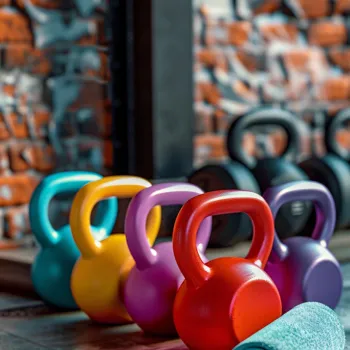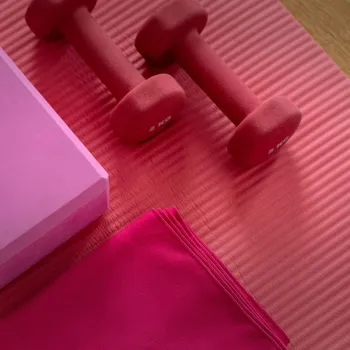Unraveling 7 Fitness Myths: Learn the Truth for Your Health Journey! Dive in for expert insights and debunked misconceptions
In India, keeping fit is becoming more important, especially with long working
hours and busy lives. But with so much information available online and from friends, it’s tough to know what's actually true and what's just a myth.

We’ve all heard different things about exercise and diet that might not be correct. This article will clear up some common fitness myths and give you the real facts so you can reach your goals in a healthy and informed way.
Forget old wives' tales and ‘gym bro’ advice – let’s get you on the right track with solid information that works for Indian bodies and lifestyles. Learn the reality behind the popular yet misleading fitness concepts and ensure your efforts truly make a difference.
Your fitness journey deserves the right guidance!
Cardio alone not best for weight loss; balanced approach needed
One of the most widespread beliefs is that spending hours on the treadmill is the ultimate solution for weight loss. While cardio definitely burns calories and improves heart health, it's not the only piece of the puzzle.

Many people assume that if they dedicate themselves to cardio, the weight will automatically shed away. However, other factors like diet, sleep, and stress levels play equally important roles. Overdoing cardio might even lead to muscle loss if you're not careful.
Think interval training or circuit training, which mix cardio with strength exercises, as these can be more effective and time-efficient. Don't underestimate the power of a balanced approach. This myth is a common pitfall, leading many to neglect other crucial aspects of fitness.
Consider a holistic approach to weight management by incorporating resistance training!
Indian women fear bulky muscles from weightlifting, but it builds lean muscle, tones body
This myth discourages many Indian women from incorporating strength training into their routines. The fear is that they will develop large, masculine muscles, which is simply not true.
Women naturally have lower levels of testosterone compared to men, making it very difficult to build the same kind of muscle mass. Lifting weights will actually help you build lean muscle, which boosts metabolism and helps you burn more calories even when you're resting.
It also improves bone density and overall strength, making everyday activities easier. Think of strength training as a way to tone and sculpt your body, not to become a bodybuilder. The idea that weightlifting equates to bulk is a baseless misconception.
Embrace the strengthening benefits of weightlifting to achieve toned physique!
Spot reduction myth debunked: fat loss is overall, not targeted
We all have those stubborn areas where fat seems to cling on for dear life, leading many to believe in spot reduction. Unfortunately, it's not possible to target fat loss in specific areas with specific exercises. For example, doing countless crunches won't magically melt away belly fat.

When you lose fat, you lose it from all over your body, and where you lose it first is largely determined by your genetics. Crunches strengthens abdominal muscles. A comprehensive approach that includes a balanced diet, cardio, and strength training is the key to overall fat loss.
Spot reduction is a tempting idea, but science proves it’s simply not how the body works. Focus on whole-body fitness to see the best results. Don’t fall prey to the mirage of isolated fat loss!
Carbs are essential for energy; choose complex over simple carbs
In recent years, carbs have become the scapegoat for weight gain, leading many to drastically reduce or eliminate them from their diets. However, carbs are an essential source of energy for your body, especially if you're active. The key is choosing the right kind of carbs.
Complex carbs, like whole grains, vegetables, and fruits, are slowly digested and provide sustained energy, while simple carbs, like sugary drinks and processed foods, cause rapid spikes in blood sugar. Eliminating carbs altogether can lead to fatigue, nutrient deficiencies, and even binge eating.
Focus on incorporating healthy carbs into your diet while limiting processed and sugary options. So, do not demonise carbs rather choose the carbs appropriately. Embrace the goodness of complex carbs!
Short, intense workouts are effective for busy schedules
Many believe that to get fit, they need to dedicate hours every day to the gym. This can be daunting and unsustainable for busy individuals. Fortunately, you don't need to spend countless hours at the gym to see results. Shorter, more intense workouts can be just as effective.
High-intensity interval training (HIIT) and circuit training are great options for maximizing your time. Even 30 minutes of exercise a few times a week can significantly improve your fitness level. Consistency is more important than duration.
Finding a workout routine that fits into your schedule and that you enjoy is crucial for long-term success. Don't let time constraints discourage you! Discover intensity for optimal result.
Pushing too hard can lead to injuries; prioritize rest and recovery
While pushing yourself is important for progress, the idea that "no pain, no gain" can be harmful. Extreme pain during or after exercise can be a sign of injury or overtraining.

Ignoring pain and pushing through it can lead to more serious problems, such as muscle strains, ligament tears, or stress fractures. It's important to listen to your body and differentiate between discomfort and outright pain.
Discomfort is a normal part of working out, but pain is a signal that something is wrong. Rest and recovery are just as important as exercise. Prioritize rest and recovery while your body gives you signals. Prioritize your well-being and don’t confuse discomfort for pain!
Supplements can enhance, but not replace, a balanced diet for health and fitness
The supplement industry is booming. These are often promoted as a quick and easy way to achieve fitness goals. While certain supplements can be beneficial in specific cases, they are not essential for most people.
A balanced diet that provides all the necessary nutrients is the foundation of good health and fitness. Focus on eating a variety of fruits, vegetables, whole grains, and lean protein sources.
Before considering supplements, consult with a doctor or registered dietitian to determine if you actually need them. Remember, supplements are meant to supplement a healthy diet, not replace it. Rely on nutritious foods and be cautious of marketing hype.















